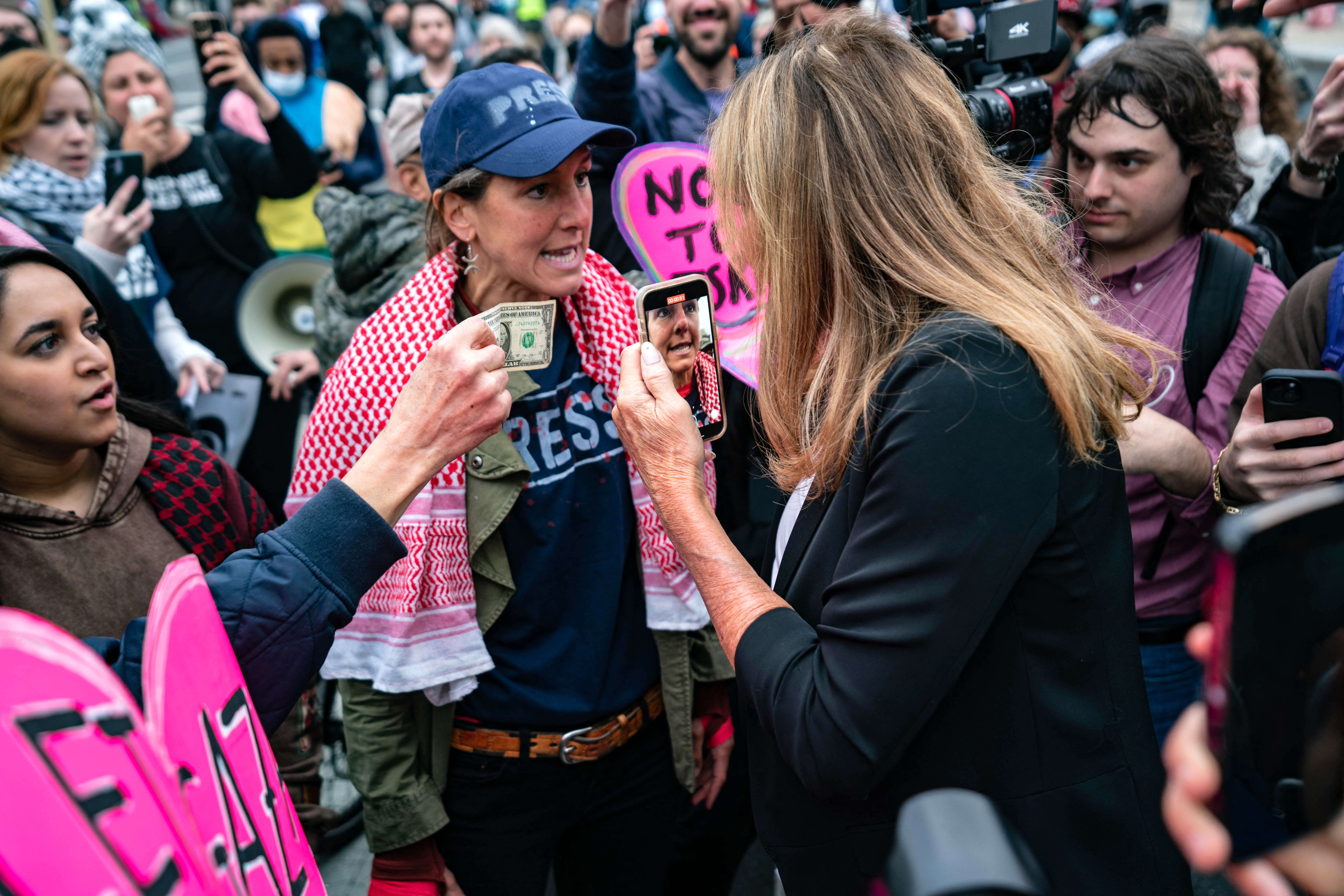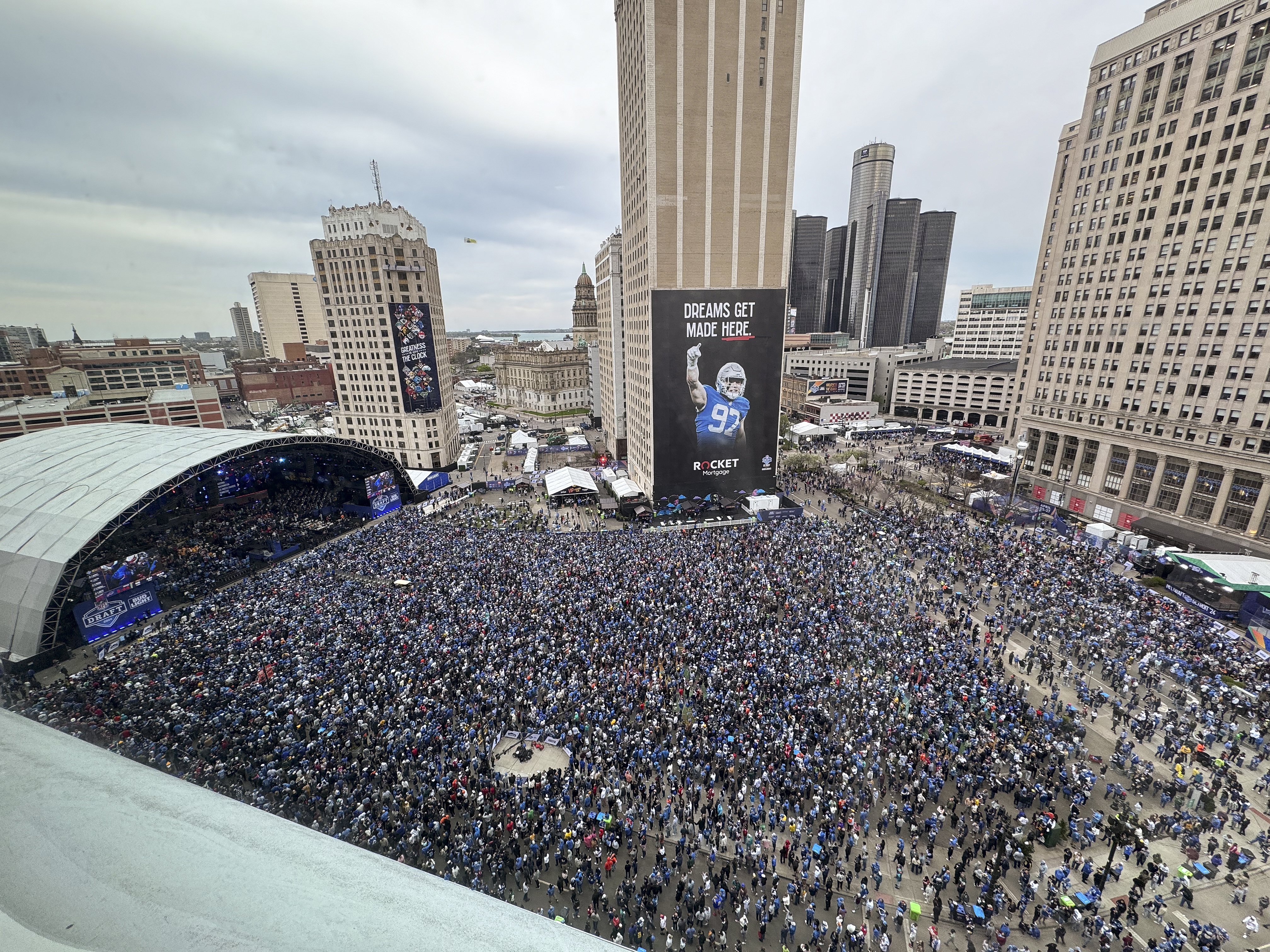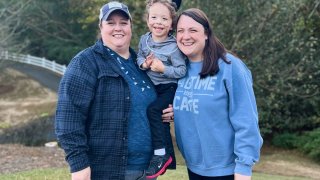
Elishea Jones has lived in Alabama her entire life, but since the state’s highest court ruled that embryos are legally children last week and three major fertility clinics halted in vitro fertilization procedures because of the potential legal liability, Jones is questioning everything.
“It’s not a political issue. They claim that we’re about saving the babies and what’s good for the children. This is what makes children happen for some families,” said Jones to NBC News, who attended a rally outside Alabama’s State House on Wednesday to advocate for IVF protections.
Jones, 34, and her wife, Paige, 41, live in Alabaster with their 4-year-old son, Fendley. The couple conceived Fendley through IVF in 2020 and froze three more embryos in the hope of having another child in the future.
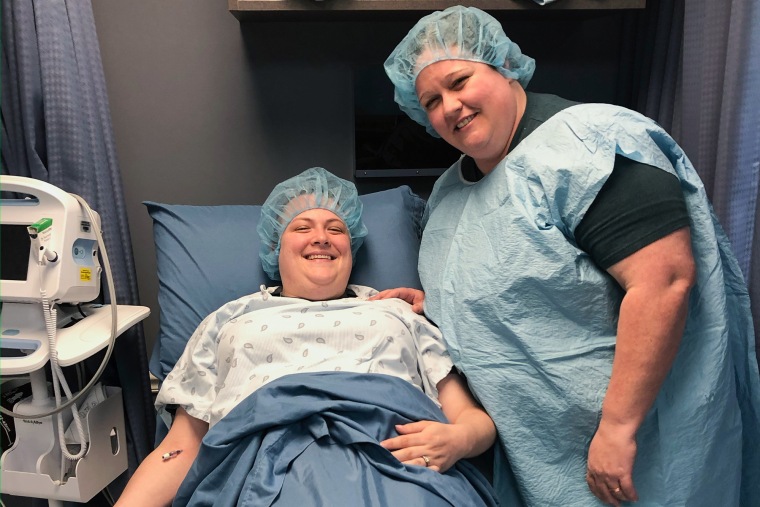
Feeling out of the loop? We'll catch you up on the Chicago news you need to know. Sign up for the weekly Chicago Catch-Up newsletter here.
Last week, Katherine Robertson, the chief counsel for Alabama Attorney General Steve Marshall, said in a statement that Marshall “has no intention of using the recent Alabama Supreme Court decision as a basis for prosecuting IVF families or providers.”
Jones said the statement did not give her much comfort: “I don’t trust that.”
One day after the attorney general’s assurance, an explosive device detonated outside Marshall’s office. No one was hurt, but Alabama authorities released a video of the suspect Wednesday in an effort to identify them.
U.S. & World
For many same-sex couples, the events of the last week have felt deeply unsettling.
While IVF and other assisted reproductive technology procedures are not unique to same-sex couples, such couples rely on them more than heterosexual couples if they are trying to conceive children biologically.
“Making IVF services off-limits or of uncertain legality disproportionately affects LGBTQ parents,” said Mary Ziegler, a professor at the University of California Davis School of Law whose expertise includes the history and politics of reproductive rights.
Research published in the American Journal of Obstetrics & Gynecology in 2019 — which reviewed pregnancies of more than 230,000 women in same-sex and opposite-sex marriages from 2012 to 2016 — found 34% of women in same-sex marriages used assisted reproductive technology, including IVF, compared to only 4% of women in opposite-sex marriages.
The IVF process for Jones — including sperm, medications and her egg retrieval procedure — cost upward of $25,000 and took a significant toll on her body.
“It was one of the toughest things I’ve ever been through, like mentally, physically,” she said, but she said with a shrug, “It was the only way to have kids.”
Jones has explored moving the embryos out of state but worries about the legal implications.
“Could I get in trouble if I try to move them?” she asked. “As soon as I can get them out of the state, I will.”
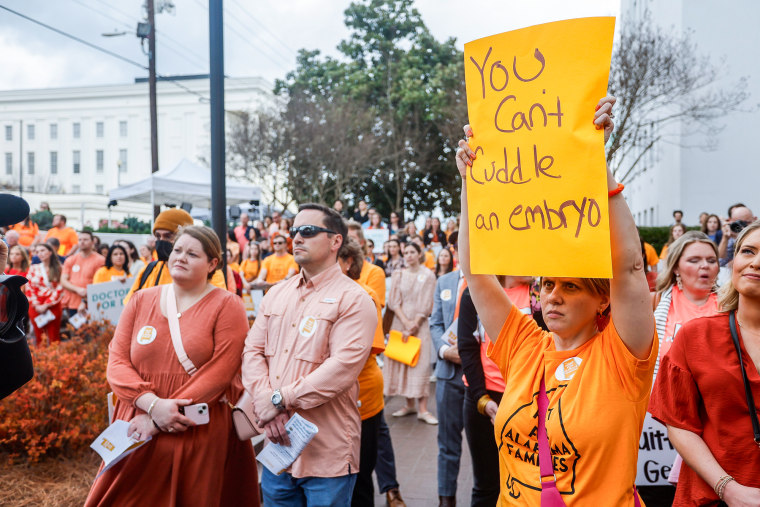
Polly Crozier, the director of family advocacy for GLAD, an LGBTQ legal rights group, said the Alabama Supreme Court’s ruling adds to the many challenges already facing LGBTQ parents in the state.
“It is an environment where it is difficult to protect your legal parent-child relationship, even when your children are born,” she said. “So I think that LGBTQ people see a ruling like this, and I think it really strikes terror in their hearts.”
“This IVF case is obviously a very clear sign that the anti-abortion movement really has its sights set much broader than abortion,” Crozier added. “For some out-there activists, the vision is the only real family is a mother and a father who have created their children through sexual intercourse and are genetically related to them.”
On Thursday, the state House and the state Senate passed bills that would grant legal protections to IVF providers and patients. Both chambers of the Legislature would need to vote on a unified bill before it could make its way to Gov. Kay Ivey. Critics say the bills fail to address whether or not an embryo created via IVF should be considered a child under state law, the core issue raised by the state Supreme Court ruling.
Caroline Veazey is not waiting to see what happens with the state legislation. Veazey, 30, went through one unsuccessful round of IVF last year before she tried again and successfully froze six embryos last summer. The process cost her over $20,000.
When the Supreme Court decision was reported, she launched a GoFundMe campaign and started frantically searching for ways to transport her embryos out of state.
“I literally Googled ‘how to move embryos out of a state’ or ‘how to ship embryos’ and started getting quotes,” said Veazey, who splits her time between Birmingham and Woodstock, Georgia. “You can prepare for all the money for IVF; you cannot prepare for ‘Oh, my gosh, I need to get my embryos out of Alabama immediately.’”
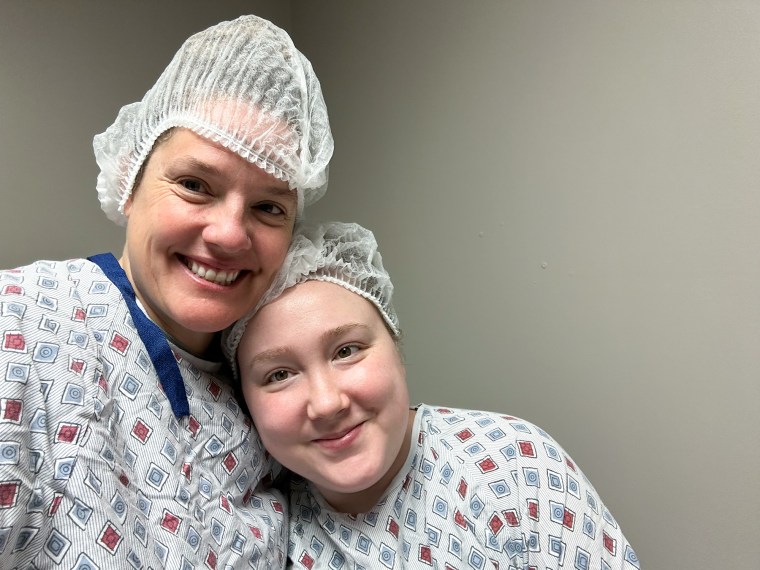
For Veazey, becoming a mother would be a dream come true. “As someone who identifies as a lesbian, I knew at some point — partner or no partner — that I was going to go through IVF,” she said.
“I have a really rough relationship with my mother, who is unaccepting of my sexuality,” said Veazey, a licensed counselor with many LGBTQ clients. “And I could only hope and dream of having a baby who I could give complete acceptance and support to. That is my goal. It’s what I’ve always wanted.”
Though moving the embryos to a storage facility near Woodstock would seem like a natural solution, Veazey is not confident something similar would not happen there. “Georgia is a red state. It can go both ways, and I need to get them to a safe state,” she said.
On Wednesday, Veazey signed paperwork waiving her IVF clinic’s liability so it can release the frozen embryos to a company that will transport them to a storage facility in Washington state.
Former state Rep. Patricia Todd, who in 2006 made history as the first openly gay lawmaker elected to the Legislature, worries about Alabama’s future.
“I think that a lot of younger same-sex couples will decide to leave Alabama,” said Todd, who now works on LGBTQ advocacy across the state. “They don’t want to live in a state that’s this regressive.”
Moving is something Elishea Jones has begrudgingly started to question. Vermont is too cold. Colorado is too far from family. She gets emotional thinking about how she will explain all of this to her son one day.
“I fought so hard to have him, so I’m going to fight for him. If s--- goes down, we’re gone,” she said, wiping away a tear, and then laughed. “I’ll protect his embryo-siblings.”
This story first appeared on NBCNews.com. More from NBC News:

